Behind every glamorous celebrity is the stylist responsible for his or her flawless appearance. There is a rising number of professional makeup artists with a passion for makeup and ambition for success, but only a handful will establish a reputation among the absolutely fabulous. Years of long shifts, late nights and early mornings paid off for Patty Chou (
Chou abandoned her accounting degree in favor of a makeup program offered in Tokyo by Japanese cosmetic giant, Shu Uermura. After graduation she returned to Taipei to work in a wedding studio. One year and 1,000 brides later, she accepted a position with Shu Uermura, where she attracted the attention of the newly launched Taiwan edition of Elle magazine.
As the only in-house makeup artist, Chou gained a name for herself among the top fashion stylists, and before long she landed contracts with record companies and TV stations. Now, more than a decade later, her makeup brush polishes countless Taiwanese idols and earns her an average of NT$50,000 per day.
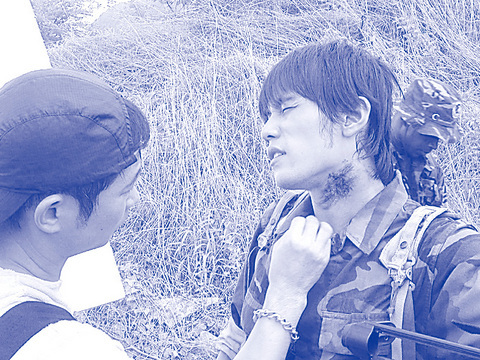
PHOTO: COURTESY OF A DU
Her fame and fortune are not representative of the industry in general. Most makeup artists earn between NT$1000 and NT$2000 per job (day) or remain at department store cosmetics counters making an average NT$200 per hour.
Although the Taiwan cosmetics industry was valued at NT$65 billion last year and experiences a steady five-percent annual growth in makeup sales, the artists still outnumber the available jobs.
"Taiwan is small. There isn't a large enough market for this kind of work here," Chou said, adding that most newcomers take any and every job opportunity that arises.
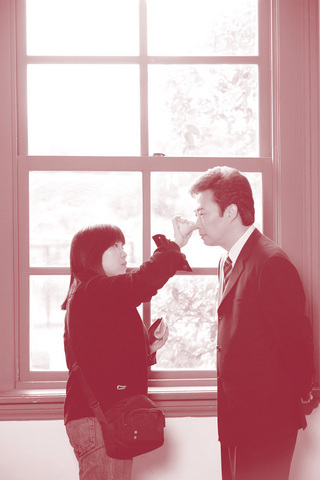
"Of course you need technique, but self promotion and making contacts are equally important. And if you're lucky you get a break," she said.
A Du has made a career out of his lucky breaks. His first came while working as a wedding photographer 17 years ago. Like many newcomers to the beauty industry he had a background in art and an interest in makeup. He gained his experience and initial client list working as an assistant to a stylist who would pass assignments to him. Du's career took a natural turn towards celebrities, specifically musicians, and now most of his work is done for music videos and commercials -- namely, for Jay Chou (
Considering the limited market for makeup artists in Taiwan, stylists must be versatile and ready to work in areas of fashion, music, TV and film. Both Du and Chou agreed that music videos provide the most challenging and entertaining work but favor a diversified portfolio as a way of staying on top.
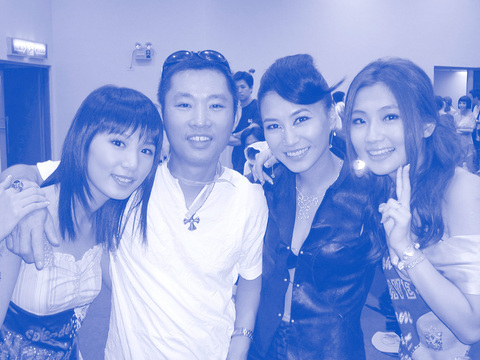
"Sometimes you need to sacrifice a high paying or fun assignment and test your talents in new areas. It's an investment in your career," Du said.
In order to keep up with the latest trends, both stylists take advantage of touring with artists to check out new products and styles abroad.
Working with media magnets, however, isn't always so glamorous. Chou found herself in the public eye last year when her boarding pass was recovered from a musician's hotel bathroom in Hong Kong and was later used as the basis for a rumor that she was sleeping with a member from Taiwanese pop band F4 while the group was on tour.
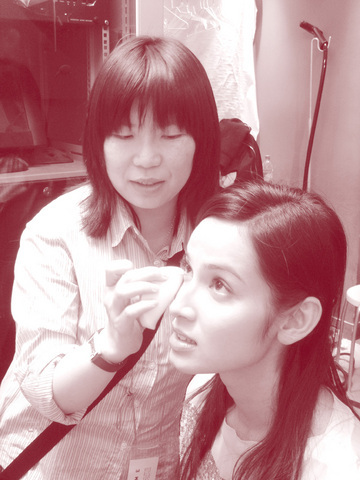
"I spend days with these artists. I know what they do in their free time, and I see them when they first wake up in the morning. I am very careful now. I have to practice discretion, because people [media] are always looking for a story about someone famous, even if it is not true," Chou said.
In addition to their high profile status and income, stylists like Du and Chou can afford to be selective with the jobs they accept, making room for more personal endeavors. Both love their work and said, 15 years into it, they still get excited on a set, even at 5am.
"I love everything about makeup, but now is the time to start thinking about my next move. I'm getting older and I don't want this schedule 10 years from now," Du said.
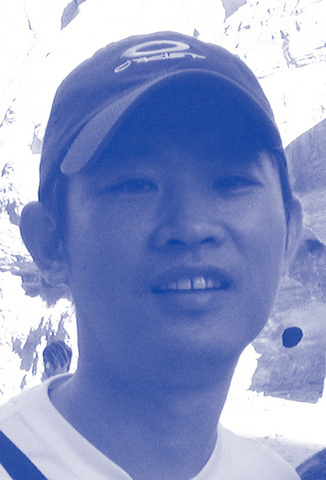
Chou agreed, and both have similar plans to establish their own respective makeup schools and line of cosmetics. While local brands have experienced little success in Taiwan, let alone globally, Du said small steps and celebrity endorsements will help ensure success. With their A-list cliental, both stylists are off to a good start with the necessary contacts.
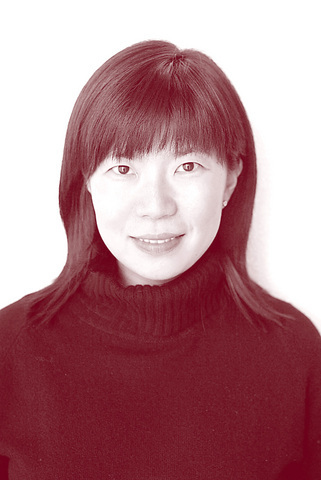

In the March 9 edition of the Taipei Times a piece by Ninon Godefroy ran with the headine “The quiet, gentle rhythm of Taiwan.” It started with the line “Taiwan is a small, humble place. There is no Eiffel Tower, no pyramids — no singular attraction that draws the world’s attention.” I laughed out loud at that. This was out of no disrespect for the author or the piece, which made some interesting analogies and good points about how both Din Tai Fung’s and Taiwan Semiconductor Manufacturing Co’s (TSMC, 台積電) meticulous attention to detail and quality are not quite up to

April 21 to April 27 Hsieh Er’s (謝娥) political fortunes were rising fast after she got out of jail and joined the Chinese Nationalist Party (KMT) in December 1945. Not only did she hold key positions in various committees, she was elected the only woman on the Taipei City Council and headed to Nanjing in 1946 as the sole Taiwanese female representative to the National Constituent Assembly. With the support of first lady Soong May-ling (宋美齡), she started the Taipei Women’s Association and Taiwan Provincial Women’s Association, where she

It is one of the more remarkable facts of Taiwan history that it was never occupied or claimed by any of the numerous kingdoms of southern China — Han or otherwise — that lay just across the water from it. None of their brilliant ministers ever discovered that Taiwan was a “core interest” of the state whose annexation was “inevitable.” As Paul Kua notes in an excellent monograph laying out how the Portuguese gave Taiwan the name “Formosa,” the first Europeans to express an interest in occupying Taiwan were the Spanish. Tonio Andrade in his seminal work, How Taiwan Became Chinese,

Mongolian influencer Anudari Daarya looks effortlessly glamorous and carefree in her social media posts — but the classically trained pianist’s road to acceptance as a transgender artist has been anything but easy. She is one of a growing number of Mongolian LGBTQ youth challenging stereotypes and fighting for acceptance through media representation in the socially conservative country. LGBTQ Mongolians often hide their identities from their employers and colleagues for fear of discrimination, with a survey by the non-profit LGBT Centre Mongolia showing that only 20 percent of people felt comfortable coming out at work. Daarya, 25, said she has faced discrimination since she